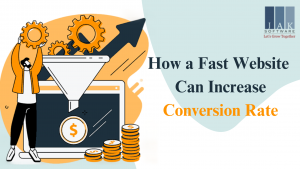Online digital marketing is brimming with buzzwords and acronyms, but two that stand out are PPC (Pay-Per-Click) and CPC (Cost-Per-Click). These terms are fundamental in the world of online advertising and, while closely related, they are not interchangeable. To create successful advertising campaigns, understanding the distinction between PPC and CPC is essential.
This article will unravel these terms in simple language, breaking down how they work, how they differ, and why they matter to businesses aiming to grow in the competitive digital space.
What is CPC?
PPC campaigns use CPC (Cost-Per-Click) as a metric. It refers to the actual amount spent for every click on your ad. You calculate it by dividing the total cost of your campaign by the total number of clicks your ad receives.
CPC Formula
To calculate CPC: Divide the overall campaign cost by the total number of clicks received.
For example, if you invest $200 in a PPC campaign and get 100 clicks, your cost per click (CPC) would be $2 ($200 ÷ 100).
CPC enables advertisers to evaluate the performance of their campaigns. A lower CPC means you’re getting more value for your advertising budget, while a higher CPC may indicate room for improvement in your targeting or ad quality.
Why CPC Matters.
- Budget Optimization: Knowing your CPC helps you allocate your advertising budget effectively.
- Campaign Efficiency: CPC provides insights into the cost-effectiveness of your ads.
- Performance Evaluation: Comparing CPC across campaigns can highlight which ads deliver better value.
What is PPC?
PPC (Pay-Per-Click) is a digital advertising method where advertisers are charged each time their ad receives a click. It’s a method of purchasing traffic to your site instead of attracting it naturally through search engine optimization (SEO).
PPC campaigns are conducted on platforms such as Google Ads, Bing Ads, and social media marketing services networks like Facebook and Instagram. These platforms enable businesses to reach precise audiences by targeting demographics, search habits, and interests.
For example, if you run a flower shop and bid on the keyword “buy roses online,” your ad might appear at the top of the search results when someone searches for that term. With PPC, you only incur costs when someone clicks on your ad, making it a precise and trackable advertising method.
Benefits of PPC
- Immediate Results: PPC campaigns can instantly drive traffic to your website after launching.
- Targeted Advertising: Ads can be tailored to reach specific audiences.
- Scalability: You can adjust budgets and target audiences based on performance.
- Measurable Metrics: PPC provides data on impressions, clicks, conversions, and more, enabling optimization.
How PPC Works
PPC campaigns operate on a bidding system, particularly for search engines like Google. Advertisers bid on specific keywords relevant to their product or SEO marketing. As a result, the higher the competition for a keyword, the greater the bid required. But, ad positioning is not based only on the highest bid. Platforms like Google also consider the quality score of your ad, which is influenced by:
Ad Relevance refers to how well your ad aligns with the user’s search query.
- Landing Page Quality: The experience users have after clicking the ad.
- Click-Through Rate (CTR): The ratio of clicks to impressions, reflecting the ad’s effectiveness.
Bidding and quality scores, therefore, determine whether your ad appears, where it’s placed, and how much you’ll pay for each click.
How CPC is Calculated
Several factors, including, influence CPC.
- Keyword Competition: High-demand keywords typically have higher CPCs.
- Ad Quality: Well-crafted ads with high relevance can lower CPC.
- Target Audience: Narrower, more targeted audiences often result in higher CPCs due to specificity.
- Industry: Some industries, like legal services or insurance, naturally have higher CPCs because of their high customer lifetime value.
By monitoring and analyzing CPC, advertisers can refine their campaigns to balance cost and performance.
The Importance of PPC in Digital Marketing
PPC is one of the most effective tools in a marketer’s arsenal for generating traffic, leads, and conversions. Here’s why PPC is so important:
- Control Over Budget: Advertisers can set daily or monthly limits, ensuring they stay within their marketing budgets.
- Flexibility in Campaigns: You can pause, adjust, or expand campaigns based on performance.
- Measurable Results: With detailed analytics, PPC makes it easy to track ROI.
- Level Playing Field: Small businesses can compete with larger companies by targeting niche keywords or specific audiences.
Why CPC Plays a Vital Role
While PPC sets the framework for ad campaigns, CPC is critical for ensuring those campaigns are cost-efficient. A high CPC might indicate problems with your strategy, such as poorly targeted ads or highly competitive keywords. A low CPC indicates that your campaign is well-optimized.
CPC data, therefore, allows businesses to make informed decisions about where to allocate resources, which ads to focus on, and what changes to make to improve performance.
Integrating PPC & CPC into Your Strategy
To run successful campaigns, it’s important to understand how PPC and CPC work together.
- PPC Strategy: Utilize PPC to set clear advertising objectives, choose platforms, and identify your target audience.
- Track your CPC: throughout the campaign to ensure your spending aligns with your results.
- Optimize for Success: Continuously refine your ads, keywords, and bidding strategy based on CPC trends and performance data.
Conclusion: Understanding PPC & CPC
At its core, PPC is the advertising model, while CPC is the metric that measures its financial efficiency. Think of PPC as the engine of a car and CPC as the fuel efficiency gauge. Together, they drive your digital marketing campaigns and, in turn, ensure you’re getting the most value out of your budget. Whether you’re new to online advertising or looking to refine your PPC strategy as well as CPC, understanding the relationship between PPC and CPC is, therefore, critical. Mastering these concepts will not only equip you to create and manage campaigns more effectively but also enable you to optimize them to deliver exceptional results.




